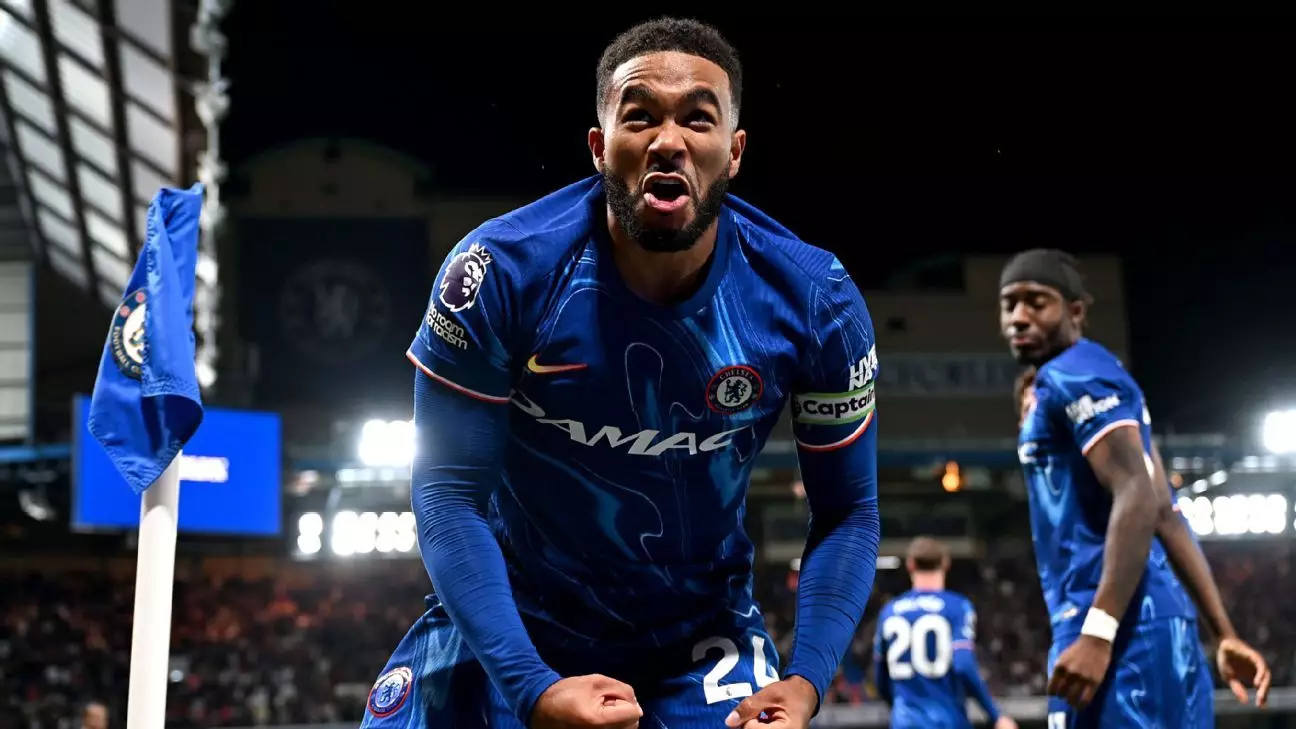Last Friday, Chelsea faced Manchester United in a game that was as much about survival as it was about securing three points. The Blues managed to scrape a 1-0 victory, but the performance left much to be desired. While the win kept Chelsea’s hopes for Champions League qualification flickering, it was evident that a more dynamic approach is essential if they wish to thrive, especially in the absence of Nicolas Jackson.
The dramatic goal that sealed the match came in the 71st minute—a fine cross from Reece James met by a header from Marc Cucurella. This was a moment of brilliance that briefly illuminated an otherwise dim performance, and yet it raised questions about Chelsea’s creativity and attacking prowess. For a side desperate to earn their spot in Europe’s elite competition, relying on isolated instances of skill is not sustainable.
The Stark Reality of Offensive Limitations
Chelsea’s attack has been a recurring theme of concern throughout the season. Their reliance on wing-back play, previously emphasized by past managers, appears to be the last vestige of efficacy, yet it is not enough. Against a struggling Manchester United side, Chelsea’s offensive initiatives were sporadic and lacked cohesion. Noni Madueke’s early miss and Cole Palmer’s half-hearted attempts to challenge the defense only highlighted the team’s inability to capitalize on chances.
The recent struggles of prominent players such as Christopher Nkunku only serve to compound the issue. With Jackson suspended and Nkunku sidelined, Chelsea’s tactical options have diminished significantly. Enzo Maresca’s choice to begin 19-year-old Tyrique George as a central forward was a bold bet, but the inexperienced striker managed a meager total of 14 touches before being replaced. Such statistics are alarming for a team competing at this level; the youthfulness of the squad must morph into reliability, or their aspirations will fall by the wayside.
The Weight of Expectations
Chelsea supporters’ palpable frustration was evident during the match, as they voiced their displeasure toward former player Mason Mount, now donning the Manchester United jersey. The emotional stakes were heightened, but the recurring theme is clear: Chelsea must learn to convert their attacking potential into tangible results. With a critical Europa Conference League final against Real Betis looming, the pressure is on for Maresca to deliver a game plan that can galvanize his players.
James’s assertion that the club belongs in the Champions League is undeniably true. Competing in Europe’s premier tournament is the aspiration of every player donning that iconic blue kit. However, aspirations alone are insufficient; they must be met with commensurate performances. The urgency to solidify their attacking strategies is no longer a matter of planning; it is the crux of their future success.
Judging Player Contributions
Evaluating individual contributions has become increasingly complex within Chelsea’s current framework. Maresca praised George for his bravery and threatening runs, but the truth is that a club of Chelsea’s stature should not find itself relying on a 19-year-old with little experience in high-stakes matches. With the summer transfer window on the horizon, both Chelsea and Manchester United are turning their eyes toward the market to remedy shortcomings in attack. The competition for players will become fierce, particularly for those who can help restore their brands to glory.
Chelsea’s long-standing tradition of nurturing talent from within their academy highlights a unique aspect of their approach. However, it is equally crucial for the club to explore external avenues that could provide immediate results. The club’s ambitions for the next campaign hinge on their capacity to merge youthfulness with experience, creating a well-rounded roster capable of withstanding the rigors of multiple competitions.
Looking Ahead: The Need for Tactical Flexibility
As the final stages of the season unfold, the need for tactical evolution has never been more pressing. Chelsea exhibited flashes of excellence against United, yet moments of brilliance cannot be the foundation of a season—it must be part of a broader, cohesive strategy. Addressing the vacancy left by Jackson and nurturing the potential of young players like George requires an adaptive mindset.
Maresca faces mounting pressure to devise effective tactics that can galvanize his team, especially with key players missing. The immediate challenge is clear: find solutions that offer not just temporary respite, but long-term viability. Chelsea’s path to success must be paved with a potent attacking strategy that resonates in their pursuit of Champions League glory—a desire that should propel them forward, not one that dwells solely in the realm of fleeting highlights. With determination and a clear focus, Chelsea can transform their current trajectory into a narrative defined by consistent success and thrilling football.

